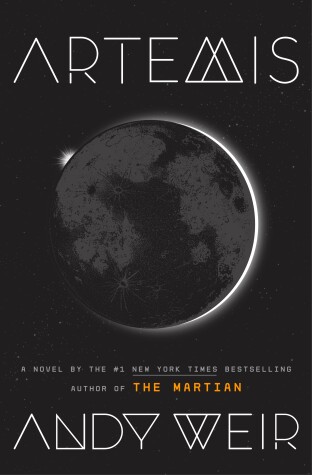El humor del autor, que tanto me gustó en la primera novela, aparece aquí algo más disuimulado, como si se hubiera contenido. Sigue abundando, por supuesto, pero ya no es tan protagonista como el megachou que monta Mark Watney en el marciano. Algunos ejemplos:
If my neighborhood were wine, connoisseurs would describe it as “shitty, with overtones of failure and poor life decisions.”
The room lights faded and a projection screen came to life on the far wall.
-“Are you a supervillain or something?” -I gestured to the screen.- “I mean, come on.”
-“Like it? I just had it installed.”
[Sobre el laboratorio de la ESA] Four hallways led off at odd angles. Some of the doors couldn’t be opened if others were open. The ergonomic abortion was the result of seventeen governments designing a laboratory by committee.
[...]workshop of Dad’s colleague Zsóka Stróbl, who was apparently named during a severe vowel famine.
Several families had obnoxious kids bouncing off the walls. In this case, “bouncing off the walls” is not just a figure of speech. The overstimulated kids were literally bouncing off the walls. Lunar gravity is the worst thing to ever happen to parents.
I’d have to blow the remaining two at the same time. Please don’t quote that last sentence out of context.
Oh. I stopped talking. This wasn’t a normal job. Tomorrow, his daughter’s life would rely on the quality of these welds. It slowly dawned on me that, to him, this was the most critical project he’d ever done. He would accept nothing short of his absolute best. And if that meant taking all day, so be it. Not everybody has the chance to quantify how much their father loves them. But I did. The job should have taken forty-five minutes, but Dad spent three and a half hours on it. My father loves me 366 percent more than he loves anything else. Good to know.
También mezcla ciencia con humor:
When she was Kenya’s minister of finance, she created the country’s entire space industry from scratch. Kenya had one—and only one—natural resource to offer space companies: the equator. Spacecraft launched from the equator could take full advantage of Earth’s rotation to save fuel. But Ngugi realized they could offer something more: policy. Western nations drowned commercial space companies in red tape. Ngugi said, “Fuck that. How about we don’t?” I’m paraphrasing here.
La historia es bastante lineal, hay pocos giros de trama y la diversión está más en el cómo que en el qué.
Otra cosa que me ha encantado es que de nuevo el autor empieza a explicar la ciencia siempre que puede, en plan muy didáctico. Me gusta cómo lo hace.
Earth’s air is 20 percent oxygen. The rest is stuff human bodies don’t need like nitrogen and argon. So Artemis’s air is pure oxygen at 20 percent Earth’s air pressure. That gives us the right amount of oxygen while minimizing pressure on the hulls. It’s not a new concept—it goes back to the Apollo days. Thing is, the lower the pressure, the lower the boiling point of water. Water boils at 61 degrees Celsius here, so that’s as hot as tea or coffee can be. Apparently it’s disgustingly cold to people who aren’t used to it.
Me he divertido bastante y aunque no he quedado impresionado, definitivamente recomiendo esta novela si la primera del autor nos gustó.
Como fallo (¿fallo?), el autor dice que como los servidores de Google están en la Tierra, cualquier pregunta a Google tarda al menos cuatro segundos en ser respondida. El ping desde el Mar de la Tranquilidad hasta la Tierra es de 2*384000/c= 2.5 segundos (era lo que tardaban las respuestas entre la Tierra y la misión Apolo XI), por lo que no sé de dónde se ha sacado el autor los 4 segundos. Tal vez en algún momento equivocó millas con kilómetros, como suelen hacer estos decreídos del sistema métrico, y para 384.000 millas sí que me salen 4 segundos en un viaje de ida y vuelta. Pero en fin. Entretenido y recomendable.
